Can victims of car theft be held liable if a thief crashes their car? What is a car owner’s responsibility in this situation? If the victim’s vehicle is recovered, but damaged, will insurance still pay to repair or replace it? Learn more about what could happen if your vehicle is stolen and then involved in a collision. Our knowledgeable Las Vegas car crash attorneys have decades of experience and a history of proven results. We are prepared to help and are available to take your call anytime, night or day.
Could You Be Liable if Someone Stole Your Car and Then Crashed it?
That depends on the situation. If your car is stolen, you are probably not going to be held liable for damages the thief causes. However, there may be some exceptions, such as if the insurance company determines the theft was foreseeable.How Could a Car Theft Be Foreseeable?
A car theft may be foreseeable due to negligence on the part of the vehicle’s owner. For instance:- Did the owner park the car and leave the keys in the ignition?
- Did the owner leave the car parked but unlocked?
- Did the owner leave the engine running?
Who Pays if Your Stolen Car Causes Harm to Someone Else?
If the thief crashes your vehicle and causes injury to another person, it could lead to a complicated claim. However, your liability is likely to be waived in that scenario because of the theft. If the thief caused a crash, he or she would very likely flee the scene, unless he or she was too injured to do so. The injured party in that situation would likely have to pursue a claim against his or her own policy. Even if caught, the thief is unlikely to have insurance or sufficient personal assets for the victim to seek compensation from.What Should You Do if You Suspect Your Car Was Stolen?
According to recent news reports, car theft in Las Vegas rose 21 percent in 2021. That said, it is important not to panic and assume your car was stolen. Before calling the police, take a minute to first be sure you did not simply forget where you parked it. If you feel certain of where you left the car, reach out next to family and friends. Maybe you were unavailable when a family member had an emergency, and he or she borrowed it.What if a Friend or Family Member Used My Car Without Permission?
If a friend or family member took your car without your permission, you will likely not be held liable if your car is involved in a crash. However, if you knowingly loaned your vehicle, your insurance may be used to cover any damages. This is why you should be cautious about lending your car to anyone.Your Responsibility if Someone Stole Your Car
As upsetting as it is to be the victim of a stolen vehicle, you have certain responsibilities. Not only do these steps help to protect your interests, but they may also help authorities locate your car.Call Police to Report the Theft
After verifying your car is stolen and not just borrowed, call the police to report the theft. Be sure to have the following details ready:- Vehicle make, model, color and year
- Vehicle information number (VIN)
- License plate number
- Insurance company and policy number
- When, where and approximate time you last saw your car
- Whether your keys were left somewhere in the vehicle
- Was your vehicle locked or unlocked after you parked it?
- Did you park your vehicle near a security camera?
- Were there any valuables in your vehicle?
Notify Your Insurance Company of the Theft
As soon as you confirm your car was stolen, you must let your insurer know. This is true whether you purchased optional insurance coverage or not. After you inform the insurance company, they will investigate your claim to ensure there is no fraud involved. Once the insurance company completes its investigation, you may be eligible for compensation. However, what you may or may not be eligible for depends on the terms of your policy. If your car is not recovered, you could receive compensation for the actual cash value of your vehicle. In Nevada, mandatory car insurance only covers injuries and property damage to others. However, there are optional coverages you can buy that also protect damage to your vehicle, including:- Collision: This optional coverage provides for collision damage to your vehicle, no matter who caused the crash. This coverage could be paid directly for repairs to your vehicle or as compensation for your loss.
- Comprehensive: This protection is also optional. It provides coverage should your car get stolen or sustain damage not caused by a crash. For instance, if your car is damaged by falling objects, vandalism, fire and more.
